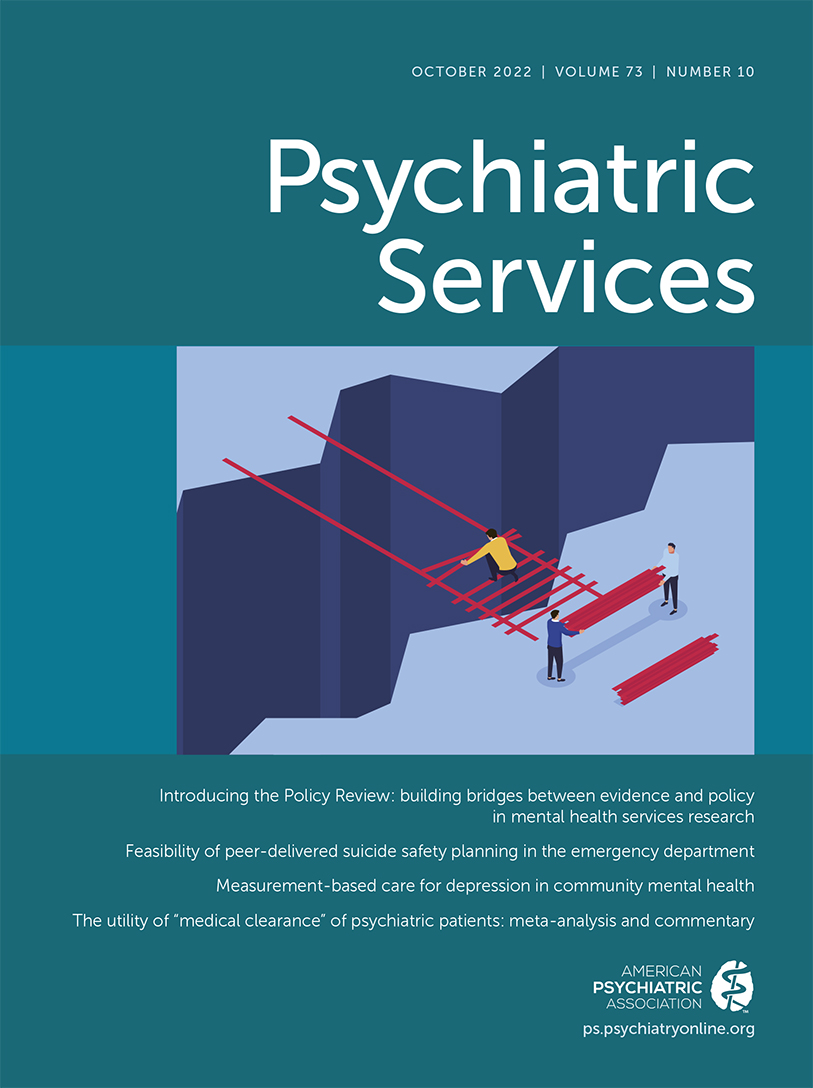Experience of Inpatient Mental Health Care Assessed With Service User–Developed and Conventional Patient-Reported Outcome Measures
Abstract
Objective:
The goal of this study was to examine and compare the psychometric properties of a patient-reported outcome measure (PROM) generated with patients’ input (Views on Inpatient Care [VOICE]) and a PROM conventionally generated without patients’ input (Service Satisfaction Scale: Residential Services Evaluation [SSS-Res]) for assessing a patient’s perception of psychiatric ward care.
Methods:
In a stepped-wedge cluster-randomized trial conducted in the United Kingdom, 1,058 participants admitted to 16 wards reported on their perceptions of care via VOICE and SSS-Res before or up to 2 years after the staff training. Exploratory and confirmatory factor analyses were used to investigate the structure of the PROMs and to assess reliability and convergent validity as well as sensitivity to change; the analyses also considered whether study participants had been admitted voluntarily to the ward.
Results:
Two factors emerged from VOICE, labeled “trust” and “involvement,” and from SSS-Res, labeled “environment” and “care,” at baseline. All subscales had high internal consistency and good convergent validity. An ability to detect change in care due to the staff training was observed on the trust subscale of VOICE (N=1,058, mean difference=−0.25, 95% CI=−0.48 to −0.02), but no change was detected on any of the SSS-Res subscales. Patients admitted involuntarily benefited the most from the staff training.
Conclusions:
VOICE captured patients’ perceptions of ward care better than SSS-Res and was sensitive to changes in aspects of trust, suggesting that participatory approaches for developing PROMs improve patients’ self-reports on the care they received.



